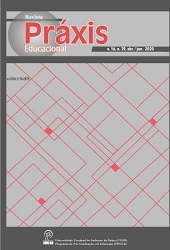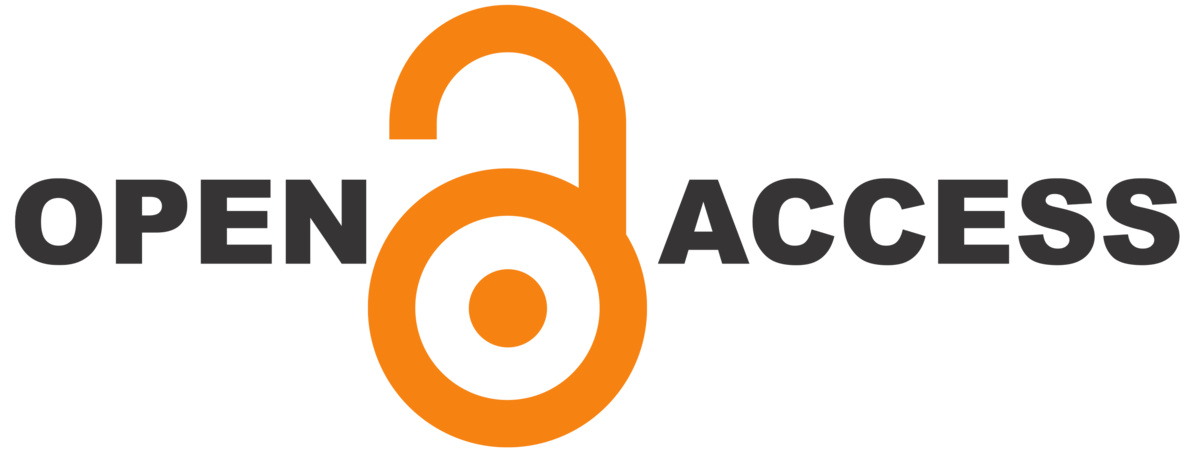PRINCIPLES OF HIGHER EDUCATION DEVELOPMENT IN WORKS OF RUSSIAN PHILOSOPHERS AND SCIENTISTS OF 20TH CENTURY
DOI:
https://doi.org/10.22481/praxisedu.v16i39.6381Keywords:
Higher Education, Philosophy of education, Russian thinkers, New moral imperative, University, HumanitiesAbstract
Introduction: the article is devoted to research of higher education various aspects, results of its recognition in national scientific and philosophical thought of 20th century are presented, connection with common European trends of higher school is detected. Views of popular Russian philosophers and scientists who made their contribution into ideologic basis and principles of University education in Russia in 20th century are considered. Materials and methods: Methods are based on research traditions of humane knowledge: philosophical-anthropologic approach to problems of human existence, comparative method of educational problems consideration in connection with various cultural and historical contexts of human existence development, comparative-historical method. Besides that phenomenological and hermeneutic research methods are reflected. Basis, contents, goals and targets of educational system including University education and connection of education with actual inquiries of contemporary human being and society are detected and philosophically comprehended. Results of research: It is presented in the article that major approaches to education and results of its comprehension by Russian thinkers comprise content unity and resonate with actual problems of its structure and contents in terms of modern world including Russian reality. Therefore the idea of necessity of optimal combination of natural scientific, special and philosophical knowledge in educational system is substantiated. Such approach allows to develop education in terms of humanitarian values, facilitates the formation of morally and spiritually oriented and socially responsible personality of the specialist, exercising reasonable world view. Discussion and conclusion: received results may be used in order to exercising the principles of higher education development in terms of contemporary challenges basing on principle of succession and keeping the greatest cultural traditions, and also for strategical planning of University educational programs.
Downloads
References
Arapov, O.G., Arapova, E.A., Volnyakova, O.A., & Solodukhin, D.V. (2018). Philosophical Problems of Education in the Russian Natural Scientific Thought. Russian Technological Journal, 6(6), 84-100.
Bendixen, C., & Jacobsen, J.C. (2017) Nullifying Quality: The Marketisation of Higher Education. Quality in Higher Education, 23(1), 20-34.
Berbegal-Mirabent, J., Mas-Machuca, M., & Marimon, F. (2018). Is Research Mediating the Relationship between Teaching Experience and Student Satisfaction? Studies in Higher Education, 43(6), 973-988.
Conceição, C.P., Ávila, P., Coelho, A.R., & Costa, A.F. (2019). European Action Plans for Science–Society Relations: Changing Buzzwords, Changing the Agenda. Minerva, 58, 1-24.
Faber, C., Hardin, E., Klein-Gardner, S., & Benson, L. (2014). Development of Teachers as Scientists in Research Experiences for Teachers Programs. Journal of Science Teacher Education, 25(7), 785-806.
Gagaev, A.A, & Gagaev, P.A. (2008). Russian Philosophical and Pedagogical Teachings of the XVIII – XX Centuries. Penza.
Gharawi, M.A., Bidin, A., & Choo, K.A. (2020). Malaysian Learners’ Preferences-Based Profile Model towards Adaptive Massive Open Online Courses. Journal of Southwest Jiaotong University, 55(1). http://jsju.org/index.php/journal/article/view/480
Halversen, C., & Tran, L.U. (2010). Communicating Ocean Sciences to Informal Audiences: A Scientist-Educator Partnership to Prepare the Next Generation of Scientists. The New Educator, 6(3-4), 265-279.
Hammarfelt, B., de Rijcke, S., & Wouters, P. (2017). From Eminent Men to Excellent Universities: University Rankings as Calculative Devices. Minerva, 55, 391-411.
Hessen, S.I. (1995). Introduction to Applied Philosophy. Moscow: Shkola-Press.
Hicks, D., & Holbrook, J.B. (2019). A Cartography of Philosophy’s Engagement with Society. Minerva, 58, 25-45.
Ilyin, I.A. (2017). The Path to Evidence. Мoscow: EKSMO-Press.
Jusuf, E., Herwany, A., Kurniawan, P.S., & Gunardi, A. (2020). Sustainability Concept Implementation in Higher Education Institutions of Indonesia. Journal of Southwest Jiaotong University, 55(1). http://jsju.org/index.php/journal/article/view/488
Lazutina, T.V., Tempel, Yu.A., & Tempel, O.A. (2017). Philosophy’s Role as a Form of Worldview in Mastering Competences by Students of the Technical Specialisations in the Modern Russia’s Higher Education System. Integration of Education, 21(1), 19-34.
Lobanova, O.B. (2007). Russian Pedagogical Thought of the Late XIX – Early XX Century on the Pedagogical Experience Core. Modern Problems of Science and Education, 1, 54-56.
Löfström, E., & Pyhältö, K. (2017). Ethics in the Supervisory Relationship: Supervisors' and Doctoral Students' Dilemmas in the Natural and Behavioural Sciences. Studies in Higher Education, 42(2), 232-247.
Mamardashvili, M. (1990a). Science and Culture. Moscow: Progress.
Mamardashvili, M. (1990b). Thought in Culture. Moscow: Progress.
Margolis, J. (2007). Improving Relationships between Mentor Teachers and Student Teachers: Engaging in Pedagogy of Explicitness. The New Educator, 3(1), 75-94.
Masuda, A. (2014). “They’re Shocked That I’m Doing Research!”: Supporting an Early Career Teacher’s Inquiry in Teaching Informative Writing. The New Educator, 10(3), 201-221.
McLean, N., & Price, L. (2019). Identity Formation among Novice Academic Teachers – A Longitudinal Study. Studies in Higher Education, 44(6), 990-1003.
Mendeleev, D.I. (1905). The Cherished Thoughts. Moscow: Mysl.
Morrison, J., & Estes, J. (2007). Using Scientists and Real-World Scenarios in Professional Development for Middle School Science Teachers. Journal of Science Teacher Education, 18(2), 165-184.
National Research Council. (1996). The Role of Scientists in the Professional Development of Science Teachers. Washington, District of Columbia: National Academies Press.
National Research Council. (2009). Learning Science in Informal Environments. People, Places, and Pursuits. Washington, District of Columbia: The National Academies Press.
Ryan, M., Taylor, M., Barone, A., Pesca, L.D., Durgana, S., Ostrowski, K., Piccirillo, T., & Pikaard, K. (2017). Teacher as Researcher, Teacher as Scholar, and Teacher as Leader. The New Educator, 13(2), 102-116.
Saxman, L.J., Gupta, P., & Steinberg, R.N. (2010). CLUSTER: University-Science Center Partnership for Science Teacher Preparation. The New Educator, 6(3-4), 280-296.
Scoles, J., Huxham, M., Sinclair, K., Lewis, C., Jung, J., & Dougall, E. (2019). The Other Side of a Magic Mirror: Exploring Collegiality in Student and Staff Partnership Work. Teaching in Higher Education. https://www.tandfonline.com/doi/full/10.1080/13562517.2019.1677588
Ukhtomsky, A.A. (2008). The Face of Another Person. Saint Petersburg: Ivan Limbakh Publishing House.
Vasilevska, D., Rivza, B., Alekneviciene, V., & Parlińska, A. (2017). Analysis of the Demand for Distance Education at Eastern and Central European Higher Education Institutions. Journal of Teacher Education for Sustainability, 19(1), 106-116.
Vernadsky, V.I. (1993). Autotrophy of Mankind. Russian Cosmism: Anthology of Philosophical Thought. Moscow: Pedagogy-Press.
Vernadsky, V.I. (2010). Selected Works. Moscow: Rosspen.
Williams, R.J.P. (1991). Science in Universities: Teaching, Research and Autonomy. Studies in Higher Education, 16(1), 15-22.
Downloads
Published
How to Cite
Issue
Section
License
Você é livre para:
Compartilhar - copia e redistribui o material em qualquer meio ou formato; Adapte - remixe, transforme e construa a partir do material para qualquer propósito, mesmo comercialmente. Esta licença é aceitável para Obras Culturais Livres. O licenciante não pode revogar essas liberdades, desde que você siga os termos da licença.
Sob os seguintes termos:
Atribuição - você deve dar o crédito apropriado, fornecer um link para a licença e indicar se alguma alteração foi feita. Você pode fazer isso de qualquer maneira razoável, mas não de uma forma que sugira que você ou seu uso seja aprovado pelo licenciante.
Não há restrições adicionais - Você não pode aplicar termos legais ou medidas tecnológicas que restrinjam legalmente outros para fazer qualquer uso permitido pela licença.












